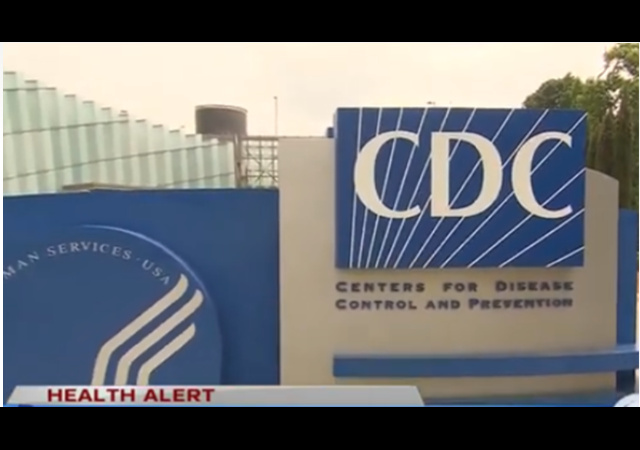Wuhan Virus Watch: CDC Confirms 14th Case of Coronavirus in the U.S.

As of Thursday, the world has over 60,161 cases of the Wuhan coronavirus reported from 28 countries and territories, with 1,365 deaths.
Reports say 8,243 of those afflicted patients are in critical condition, and 5,756 are confirmed recoveries.
***We will update this post with new information.
In the United States, there are 420 People Under Investigation (PUI) for possible Wuhan coronavirus, distributed in 41 states and territories. Of those, 14 have tested positive (located in six states), 347 have tested negative, and 59 cases have pending diagnosis status.
CDC confirms 14th case of coronavirus in the US
The Center for Disease Control and Prevention (CDC) has announced that one of the quarantined Wuhan evacuees at the Miramar Marine Corps Station has tested positive for COVID-19.
CDC today confirmed another infection with 2019 novel coronavirus (COVID-19) in the United States in California. The patient is among a group of people under a federal quarantine order because of their recent return to the U.S. on a State Department-chartered flight that arrived on February 7, 2020.All people who have been in Hubei Province in the past 14 days are considered at high risk of having been exposed to COVID-19 and subject to a temporary 14-day quarantine. This is the second person at this base who has tested positive for COVID-19. The first and second patients arrived on different planes and were housed in separate facilities; there are no epidemiologic links between them.According to CDC on-site team lead Dr. Chris Braden, “At this time there is no indication of person-to-person spread of this virus at the quarantine facility, but CDC will carry out a thorough contact investigation as part of its current response strategy to detect and contain any cases of infection with this virus.”
Rio Braces for Coronavirus Risk During its Famous Carnival
Public health officials in Brazil are preparing for Rio de Janeiro’s famous Carnival when well over 1 million visitors pour into the city for Mardi Gras celebrations.
But this year, the job is just a little bit tougher thanks to the new coronavirus that had spread to some 25 countries with the epicenter of the outbreak in Wuhan, China.In the days leading up to Carnival, which falls Feb. 21 to Feb. 26 this year, Rio officials have been setting up a “city contingency plan,” and training health workers in the metropolis of nearly 7 million people how to identify and contain the new threat.”It’s worrying because there a lot of people moving around and a lot of tourists coming into the country from all parts of the world,” Patricia Guttman, a municipal health official, told Reuters.Guttman said the city had freed up some 120 hospital beds that could be used for suspected coronavirus patients.During Carnival, hundreds of thousands of visitors parade through the sweltering seaside streets of Rio. In practice, many of the celebrations often include a dearth of clothing and a surplus of alcohol, creating a ripe environment for contagious disease.
The 34 Brazilians evacuated from Wuhan, the epicenter of the outbreak, are now being held in quarantine at a military base.
Health experts warn US Congress that coronavirus may hit the US hard in the next few weeks.
Leading health officials are warning Congress that there may be a significant uptick in coronavirus cases nationwide.
“We’re going to start to see those outbreaks emerge sometime in the next two to four weeks,” said Scott Gottlieb, former Food and Drug Administration commissioner. “We should be leaning in very aggressively to try to broaden diagnostic screening right now, particularly in communities where there is a lot of immigration where these efforts could emerge to identify them early enough that they’ll be small enough that we can intervene to prevent — prevent more epidemic spread in this country.”Gottlieb, one of five panelists who briefed the Senate Homeland Security and Governmental Affairs Committee on Wednesday, said although U.S. customs officials blocked some travel and are screening travelers returning from the Chinese city of Wuhan, where the virus is believed to have originated, they could not have stopped every person with coronavirus from getting into the United States.“I don’t think we should be planning for the onesie-twosie cases that we’ve been seeing thus far in the United States,” said Asha George, executive director of the Bipartisan Commission on Biodefense. “We have to plan for the possibility that we have thousands of cases, you know.”
CLICK HERE FOR FULL VERSION OF THIS STORY